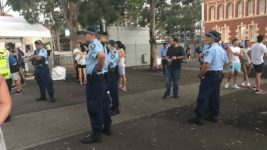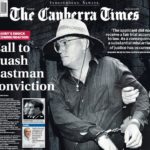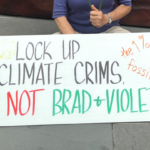Watchdog to Investigate Strip Search of Teen

The New South Wales Law Enforcement Conduct Commission (LECC) is set to investigate the strip search of a sixteen year old girl at last year’s Splendour in the Grass music festival, as part of a public hearing into strip searches.
At the hearing, due to be held in Sydney in October, the LECC will investigate whether police engaged in serious misconduct when they detained and strip-searched the minor, and will aim to determine if police behaved unlawfully when they carried out strip-searches on other festival attendees.
Increase in Strip Searches
The hearing will also examine the practice of strip searching more broadly, in the wake of statistics which show the number of these searches has risen 20-fold over the past 12 years, with Police now using strip searches as ‘routine policing’ when the law makes clear they are not permitted to do so.
Over the past four years, strip search use has risen by close to 47 percent, with 3,735 carried out in the year 2014-15 and 5,483 in 2017-2018. Furthermore, in the majority of instances (64 percent of the time) Police found nothing illegal in their search.
This follows numbers released in July last year which showed that the police practice of carrying out of strip searches following a positive indication by a sniffer dog had basically doubled from 590 in 2016 to 1,124 in 2017.
Again, the majority of searches – 64 percent – resulted in nothing illegal being found.
Strip search protocol – what the law says
Section 31 of the Law Enforcement (Powers and Responsibilities) Act 2002 that’s that a police officer can only strip search a person if he or she “suspects on reasonable grounds” that the “seriousness and urgency of circumstances” make it necessary.
Section 33 stipulates that a strip search must be carried out in an enclosed area, by someone of the same sex and at no time should an individual be present that doesn’t need to be. Body cavities cannot be searched, an officer can never touch the person, and the search must not involve the removal of more clothes than necessary.
A strip search can never be carried out on a child younger than 10 years of age. In circumstances where it is deemed necessary to search a child between the ages of 10 and 18, a strip search should be carried out in front of a parent or guardian. If this is not possible, it should take place in front of another person who is not a police officer and is capable of representing the interests of the youth.
Despite these laws, NSW Police data shows that almost 300 children were strip-searched during a two-year period between the financial years 2016-17 and 2017-18, with the youngest person subjected to the procedure being 10 years old. There are also reports of searches of Indigenous children being carried out illegally.
Further analysis of the data suggests that along with Indigenous children, young women are also being disproportionately targeted by Police.
A young woman recently told the Coronial Inquest into music festival deaths that a police officer threatened to make her strip search ‘nice and slow’. Another said that being strip searched made her relive the trauma of her sexual assault.
‘Aggressive policing’
A spike in the number of complaints about strip searches in recent months has now led the LECC to investigate.
Multiple reports suggest that NSW Police are not following their own protocols when conducting strip searches, and are using strip searches to degrade and intimidate.
Certainly, there seems to be a great deal of community concern over the fact that an increasing number of searches are being carried out in circumstances which cannot be considered “serious or urgent” by any measure, and that Police are also conducting searches in public places, such as the street.
Public Hearing Dates
The public hearing is expected to run for three days, starting at 10am on Tuesday 22 October at the Commission’s hearing room, Elizabeth St, Sydney.







